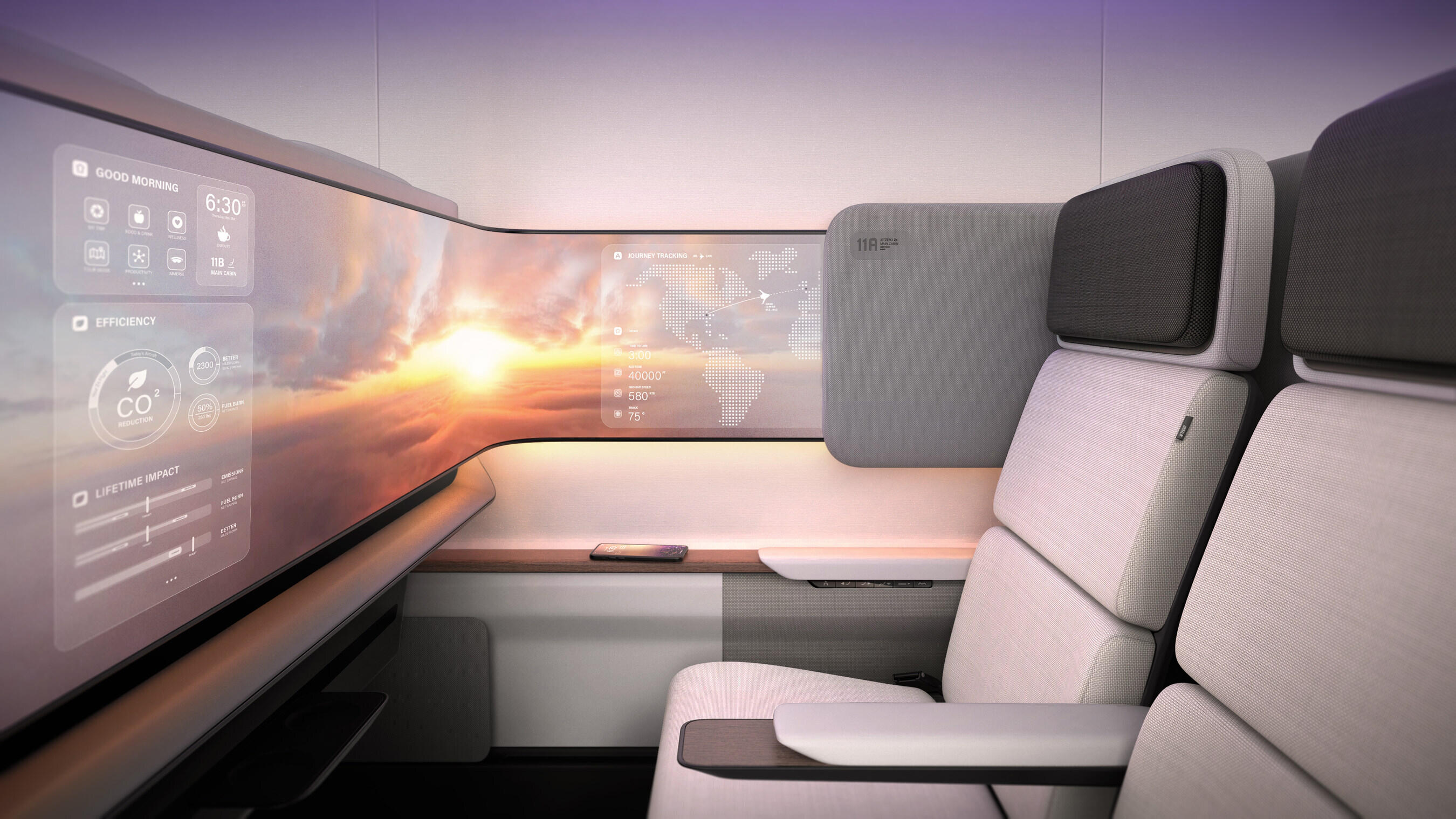JetZero is partnering with Delta Air Lines on a revolutionary, more sustainable aircraft.
JetZero's vastly more fuel efficient blended-wing-body (BWB) design is at the centre of the collaboration and is one facet of Delta's ongoing journey to advance industry innovation, drive down cost through increased fuel-savings, elevate the customer experience and achieve net-zero emissions by 2050.
Delta's formal partnership with JetZero comes after the start-up received a grant from the U.S. Air Force in 2023 to facilitate building a full-scale demonstrator for its first flight in 2027.
Delta will play a crucial role in the development by providing operational expertise to make this technology viable.
"Working with JetZero to realise an entirely new airframe and experience for customers and employees is bold and important work to advance the airline industry's fuel saving initiatives and innovation goals," said Amelia DeLuca, Delta's Chief Sustainability Officer.
“While Delta is focused on doing what we can today to address our carbon footprint, it's critical we also work with a variety of partners to advance revolutionary technologies, like JetZero's blended-wing-body aircraft, to solve for a significant portion of future aviation emissions.”

JetZero, co-founded by aerospace legend Mark Page, is developing the world's first commercial BWB airplane.
With up to 50% lower fuel burn and carbon emissions compared to existing commercial airliners, JetZero's BWB offers the aviation industry a clear path to achieving its 2050 net-zero goals.
Working alongside the US Air Force, NASA, and the FAA, and backed by decades of investment and research into blended wing technology, JetZero looks to enter commercial service by 2030.
As the newest member of Delta's Sustainable Skies Lab, JetZero has the direct support of the global carrier's world-class talent and access to its industry-leading operations.
That includes the right maintenance and operational footprints to prove and accelerate the commercialisation of BWB airframe technology. This is expected to be up to 50% more fuel efficient than tube-and-wing designs customers experience today.
The partnership with JetZero marks Delta's fourth "revolutionary fleet" partnership outlined in its Sustainability Roadmap launched in 2023: a groundbreaking, transparent roadmap by which Delta aims to reach net-zero emissions by 2050.
Delta will also help design the interior experience of the future to ensure a best-in-class customer and employee experience.
The uniquely shaped airframe, which differs from today's tube-and-wing shape, offers endless possibilities.
Customers can expect cabin changes that enhance their experience, including dedicated overhead bin space for each passenger, accessible seats and lavatories, and fewer rows.
"JetZero is working to change the world by bringing to market an aircraft that aims to fly this decade and make immediate and marked progress toward reducing airline energy costs, and the associated emissions," said Tom O'Leary, JetZero cofounder and CEO.
"The ability to realise such significant efficiency gains in the near future meaningfully impacts the industry's commitment to reach net-zero emissions by 2050 and will serve as the foundation on which other technologies and efficiencies can be realized. Delta was one of the first carriers to partner with us, supporting us behind the scenes since 2023, and we look forward to their continued support of our program through their deep knowledge and expertise."
The revolutionary BWB aircraft, first tested and demonstrated in the 1990s by NASA and Stanford University to be safe and efficient, will also use sustainable aviation fuel (SAF) when it is put into service, since it will use today's engine propulsion systems.
JetZero's BWB aircraft are expected to include a slate of benefits for consumers and environmental sustainability including:
- The BWB is up to 50% more fuel efficient than conventional tube-and-wing airframes on the market due to the design, which creates less drag, provides more lifting surface area, provides even load and lift distribution, and overall is markedly lighter in weight.
- Capacity to carry more than 250 customers – which is similar to existing widebody aircraft – to provide the level of capacity and range needed to meet growing travel demand.
- Less noise. With engines mounted on top of the aircraft, BWB aircraft are expected to be significantly quieter than existing aircraft.
- The potential to fit into existing airport infrastructure and offer faster turn-around times – areas Delta is exploring and advising on.
- Utilising SAF to further decrease lifecycle carbon emissions.
Delta believes in connecting people to a sustainable travel future.
The global airline's ongoing work to reach net-zero emissions by 2050 while delivering a more sustainable future of travel focuses on what they fly, how they fly and the fuel they use.
While Delta is making changes that are within their control today, like reducing fuel consumption across JetZero's operations, Delta is also working on long-term solutions like advancing sustainable aviation fuel to fully decarbonise its operations and the industry.



